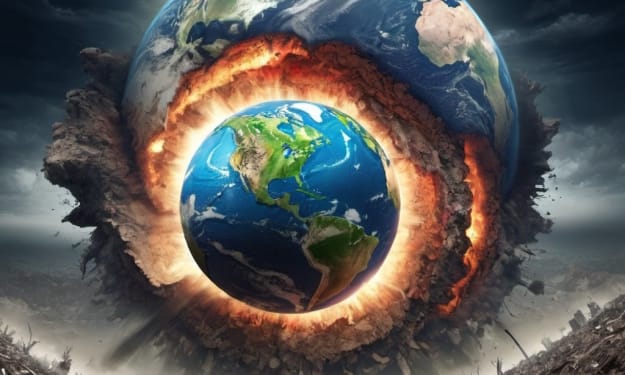Global Warming
Urgent Action Needed to Preserve Our Planet

Global warming remains one of the most pressing challenges of our time, with far-reaching implications for the planet and future generations. The rise in greenhouse gas emissions, primarily driven by human activities, has resulted in a steady increase in Earth's average temperature. This phenomenon, known as global warming, has profound consequences for the environment, ecosystems, and the well-being of all living beings. It is imperative that we understand the causes and effects of global warming and take immediate action to mitigate its devastating impacts.
Causes of Global Warming
Human activities, particularly the burning of fossil fuels such as coal, oil, and natural gas, have been the primary drivers of global warming. The combustion of these fossil fuels releases carbon dioxide (CO2) and other greenhouse gases into the atmosphere. Deforestation, industrial processes, and agricultural practices also contribute significantly to greenhouse gas emissions. These activities have intensified since the industrial revolution, leading to a sharp increase in atmospheric CO2 concentrations.
The Greenhouse Effect
Greenhouse gases, including CO2, methane, and nitrous oxide, act as a blanket around the Earth, trapping heat from the sun and preventing it from escaping into space. This natural process, known as the greenhouse effect, is essential for sustaining life on our planet. However, human-induced increases in greenhouse gas concentrations have intensified the greenhouse effect, causing excessive heat retention and a rise in global temperatures.
Consequences of Global Warming
Rising temperatures: The average global temperature has been steadily increasing, leading to more frequent and severe heatwaves. Rising temperatures also disrupt weather patterns, contributing to extreme weather events such as hurricanes, droughts, and floods.
Melting ice caps and rising sea levels: The warming of the planet has accelerated the melting of glaciers and ice caps in polar regions. This phenomenon not only contributes to rising sea levels but also threatens the habitats of numerous species and coastal communities.
Ecosystem disruptions: Many ecosystems, such as coral reefs, forests, and Arctic ecosystems, are highly sensitive to temperature changes. Global warming disrupts these ecosystems, leading to the loss of biodiversity, ecosystem services, and threatening the survival of various species.
Impact on human health: The health impacts of global warming are far-reaching. Heat-related illnesses, the spread of infectious diseases, and increased respiratory problems due to worsened air quality are some of the health consequences associated with rising temperatures.
Taking Action
Addressing global warming requires collective action from individuals, governments, and businesses. Here are some key steps we can take to mitigate its impact:
Transition to renewable energy: Shifting from fossil fuels to clean, renewable energy sources such as solar, wind, and hydroelectric power is crucial. Governments should provide incentives and invest in renewable energy infrastructure to accelerate this transition.
Energy efficiency and conservation: Promoting energy-efficient practices and technologies can significantly reduce greenhouse gas emissions. Individuals can contribute by conserving energy at home, using energy-efficient appliances, and adopting sustainable transportation options.
Sustainable land use and agriculture: Adopting sustainable farming practices, reducing deforestation, and promoting reforestation efforts can help sequester carbon dioxide and preserve biodiversity.
International cooperation: Addressing global warming requires international cooperation and agreements. Countries must work together to set ambitious emission reduction targets and implement policies to achieve them.
Education and awareness: Raising awareness about the causes and effects of global warming is crucial. Education at all levels, from schools to media outlets, can help foster a sense of responsibility and inspire collective action.
Global warming poses an existential threat to our planet and all its inhabitants. It is imperative that we recognize the urgency of the situation and take immediate action to reduce greenhouse gas emissions, transition to clean energy sources
About the Creator
Syed Usman Ahmed
🖋️ Unleashing the Power of Words | Usman: The Maestro of Article Writing ✍️






Comments
There are no comments for this story
Be the first to respond and start the conversation.